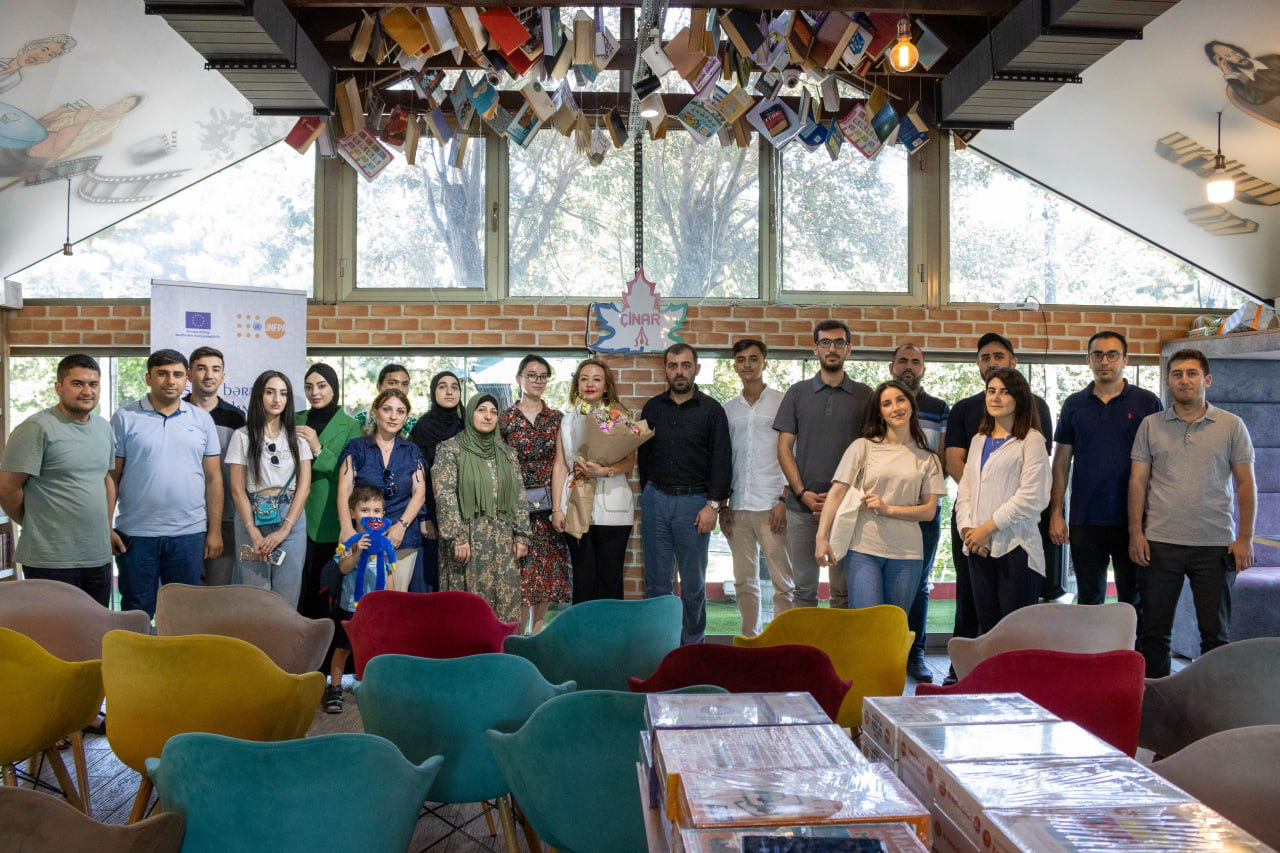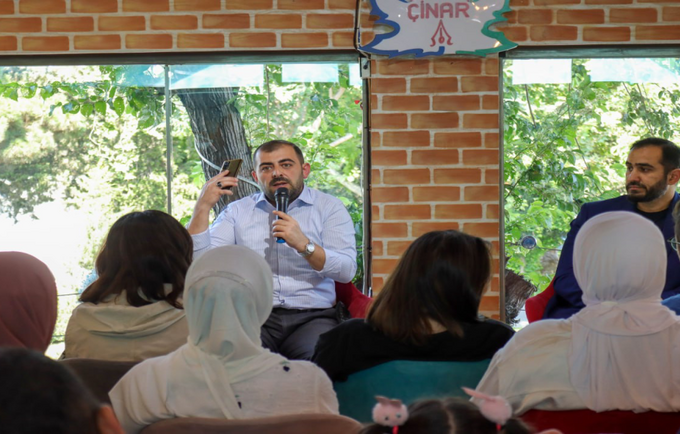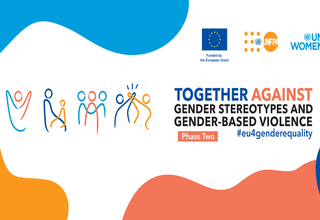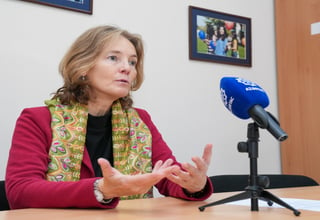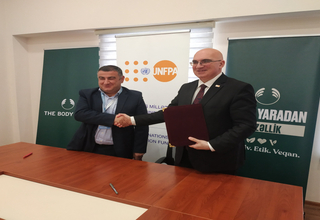Our paths crossed with Farid Abdullah through his active engagement with our social media accounts. A theologian and Islamic scholar, he graduated from Baku Islamic University in Azerbaijan and pursued religious education in different countries.
Farid came across a UNFPA-led project during COVID-19 pandemic lockdown, when social media was the main platform for delivering our awareness raising sessions. Although he initially joined these sessions as a participant, he was soon inspired to reconcile issues raised in a gender context with the Islamic principles and actively participated in all webinars throughout 2020. The following year Farid joined the project as a moderator, leading discussions on the "Men For Gender Equality" virtual platform, further promoting meaningful dialogue on gender equality.
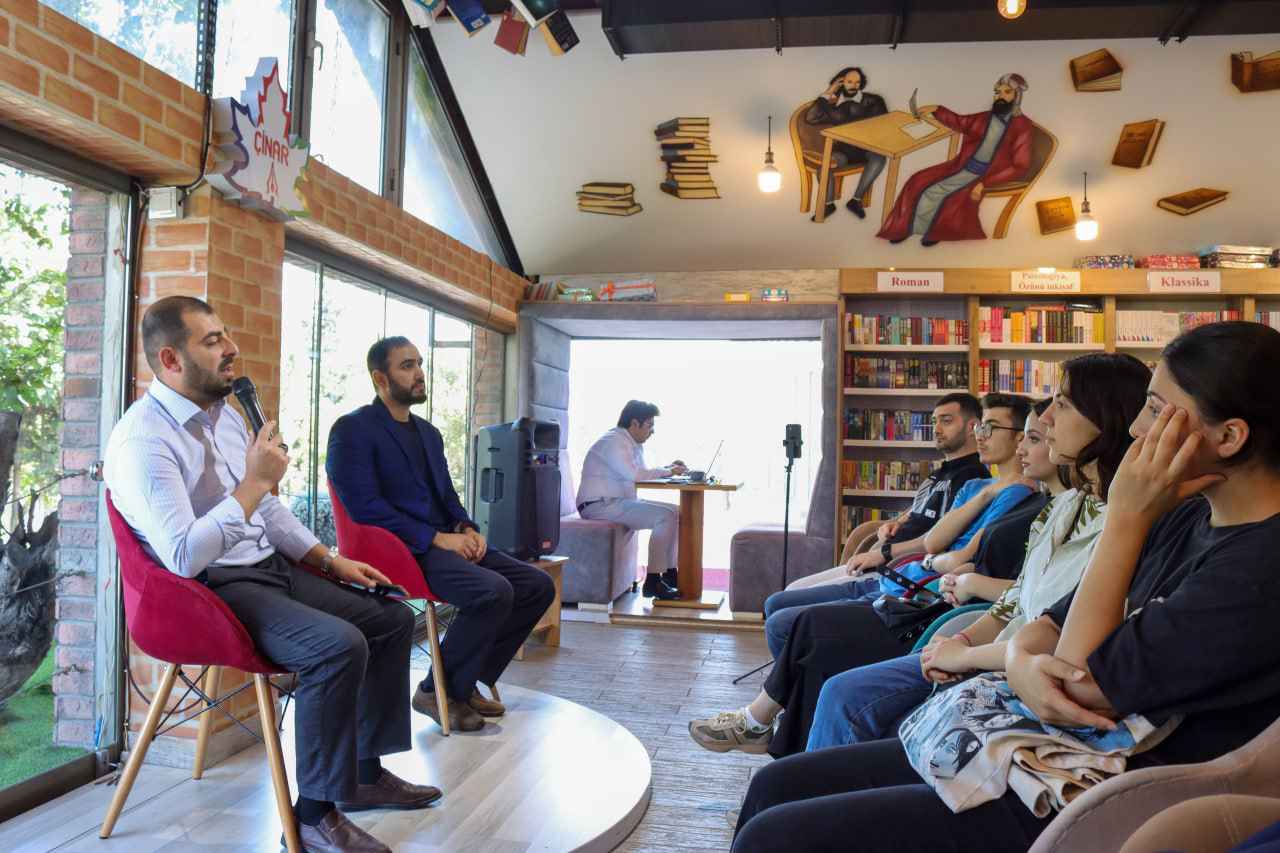
Supported by UNFPA in Azerbaijan, this platform fosters change through hosting regular sessions with participation of theologians and male activists to challenge rigid social norms and behaviours as well as stereotypes that perpetuate gender-based discrimination and violence. Farid is a prominent expert on this platform, having earned the respect from the religious community through his blog, in which he smoothly intertwines religion and gender. His writings echo his thoughts on gender equality and the value of girls in society.
"After years of study, I came to the conclusion that there is a serious contradiction between the religion of Islam and people's perception of it. Religious concepts may oftentimes seem to have different interpretations in the society. I have always dreamed of a platform that brings together discussions on gender and religion", says Farid, who vehemently opposes violation of human rights based on the gender disguised under pseudo-religious justifications.
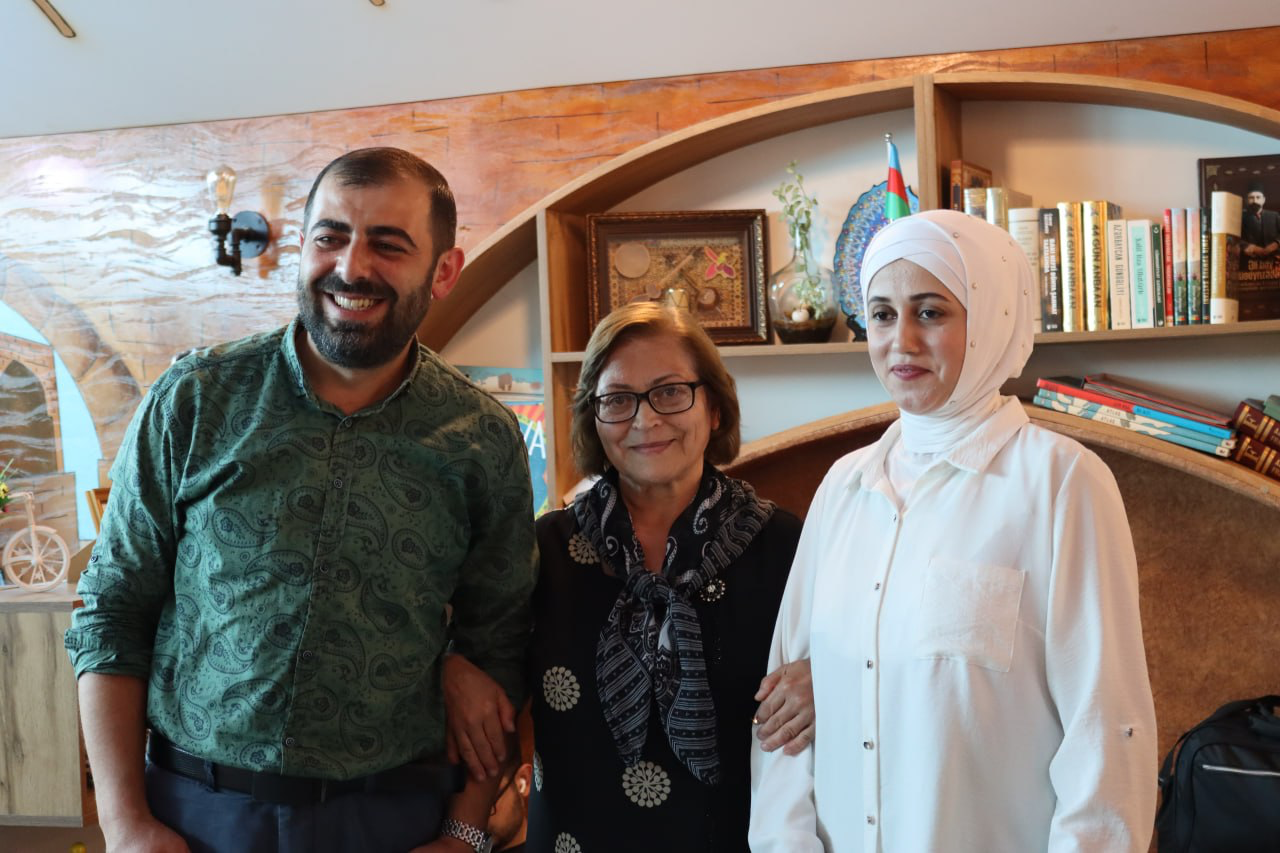
He stands firmly against discrimination towards women and girls and rejects the notion that their primary role after marriage is to obey and serve their husbands, all justified for the sake of religion. In his blog posts, Farid consistently advocated for gender equality, drawing inspiration from the Prophet Muhammad and imams, who, in his opinion, actively worked to eliminate gender differences in their society: “They congratulated those with female offspring, discouraged disappointment over having daughters, and encouraged gender equality”.
Farid recalls a catchy episode from his experience within the project: a well-known religious leader, accompanied by his wife and daughter, participated in a concluding seminar. Initially sceptical about gender equality discussions, he believed such talks would disrupt family values: “However, something transformative occurred during the seminar. That person changed his mind. He realized that these conversations posed no threat to religious and moral values but rather centred around a fundamental right granted by Allah – the right to a decent life for both genders. He felt obliged not to hide such important discussions from his community and promised to promote these topics in his future activity as a religious scholar”.
Farid recognizes the challenges of working with religious communities. He often faces criticism after each seminar or vlog, especially when it comes to gender-based violence and men's experiences. However, he is encouraged by the messages of support and positive feedback he receives from male followers, which are indicative of a widespread lack of information and understanding on gender related issues in the society: “I do believe that the "Men For Gender Equality" platform has an instrumental role in addressing and eradicating patriarchal social norms and discriminatory practices that feed stereotypes and inequalities”.
